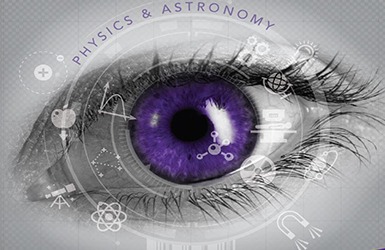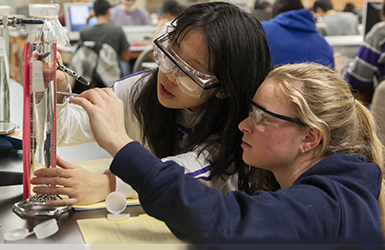
Physics and astronomy involves the study of matter, forces, and energy as they relate to the understanding of our environment, from Earth to the distant reaches of the universe.
Astronomers employ theory, simulations, and observations to provide insight on topics such as star and planet formation. Physics research ranges from curiosity-driven theories about the universe to practical applications in modern materials research and medical physics, developing tools for diagnostic imaging (e.g., MRI and ultrasound), cancer treatment, and neuroscience.
Student Perspective

I spent my first three years at Western studying astrophysics taking the next year off from studies to complete a 16-month internship with the Science Internship Program . In a theoretical sense, the Physics and Astronomy program provided a great foundation from which the internship program drew upon and put into practice, enabling my learning to relate to the real world. Upon graduation, I was very confident I had the skills to apply in the workforce and my internship experience played a key role.
At the London Regional Cancer Program, I researched the effects of a new form of lung cancer treatment and presented my work at various scientific conferences. I had the opportunity to work with, and learn from, amazing scientists. The experience was enriching, rewarding, and helped embellish my degree. Upon my return to school to complete my fourth year and as a result of my internship, I changed my degree to physics and decided to add a fifth year to complete a minor in computer science, setting me out on the career path I wished to pursue.
- Sean, BSc 2019
Careers
Students in Physics & Astronomy develop skills in problem-solving, physical measurements, computation, and analysis - highly sought after abilities in many fields. All of our students are well-prepared to enter graduate school to become professionals in rapidly evolving disciplines. Graduates are employed worldwide in fields as diverse as pure and applied research, medicine, engineering, teaching, science journalism, management, and finance. Indeed, it is difficult to find any career in which physicists are not represented. Recent graduates have gone on to work as industry scientists at medical imaging companies, software specialists working with big data, and completing MD degrees at Ontario medical schools.





